Gigabyte MU70-SU0 (Intel C612) Server Motherboard Review
Bohs Hansen / 9 years ago
A Closer Look & Layout Analysis
The previous Intel server platforms had one major problem caused by its design where the maximum supported memory frequency was downgraded when more DIMMs were added to the motherboard. This resulted in people having to make the decision between pure performance and the amount of memory installed and it proved troublesome for some memory-hungry applications.
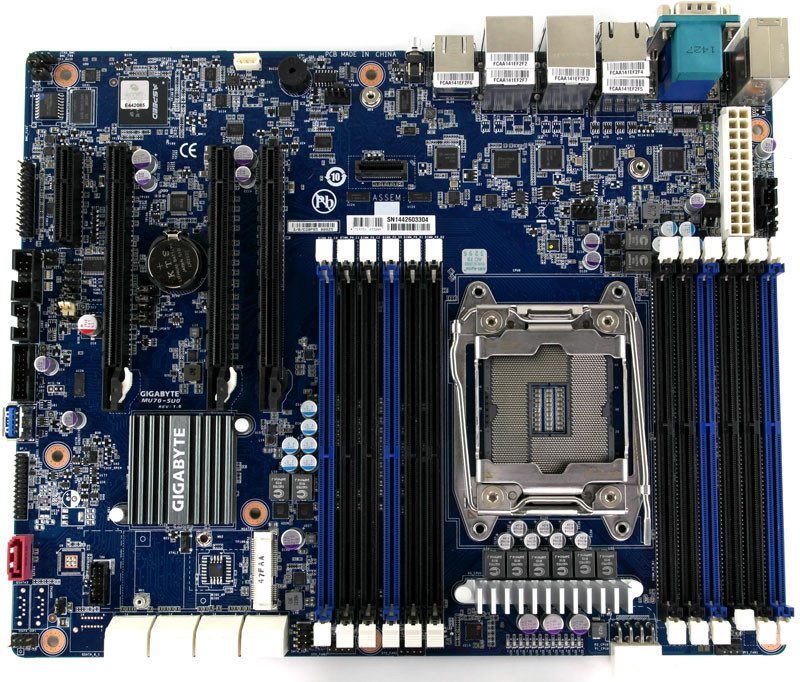
Gigabyte offers a unique solution as all of their motherboards that are based on the LGA 2011-3 socket support a maximum frequency of 2133 MHz by default in any memory configuration, even when all the memory banks are fully loaded.
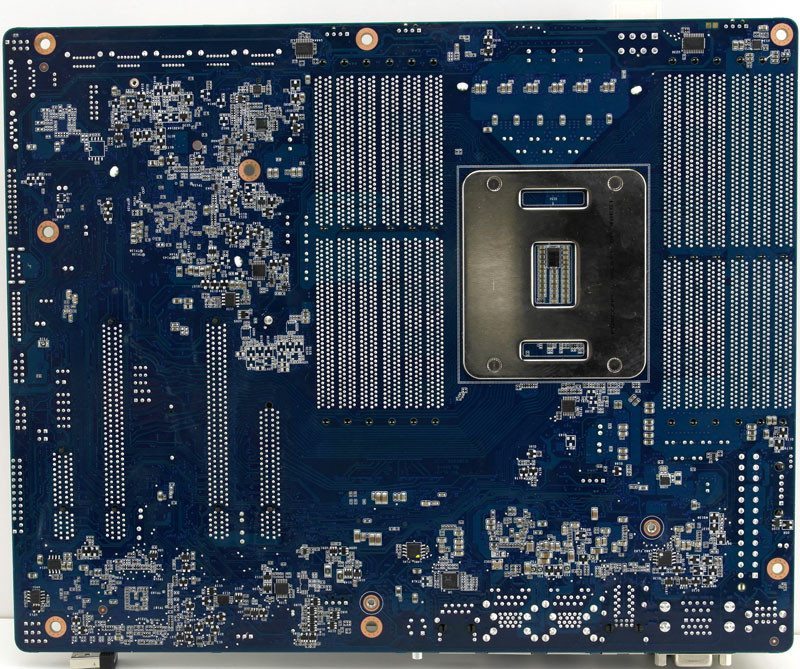
The MU70-SU0 comes with 12 DIMM slots, which is quite uncommon in the ATX form factor and best of all is that we can run all slots on their maximum speed of 2133MHz. That means that we can effectively run this motherboard with up to 768GB DDR4 memory at that speed, making this board an ideal platform for any server that runs memory-intensive applications.
There is support for quad-channel memory setups with ECC RDIMM and LRDIMM modules. You can use single and dual rank RDIMM modules up to 32GB and quad rank LRDIMM modules up to 64GB. When it comes to speed, you got the options between 1600, 1866, and 2133MHz 1.2V modules.
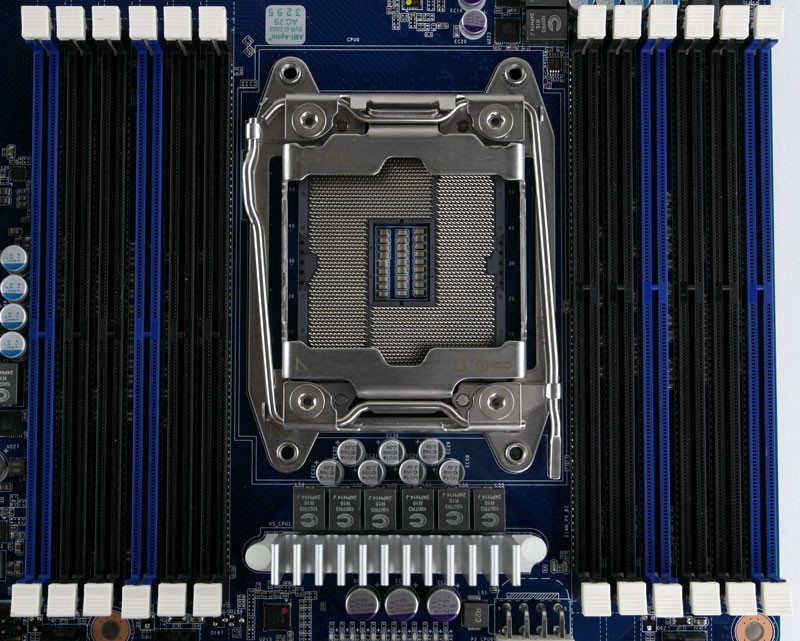
This is a single CPU motherboard and the LGA 2011-3 socket supports Intel Xeon E5-2600 V3 and E5-1600 V3 processors. Due to the amount of DIMM slots on this motherboard, the area to mount CPU cooler is very narrow and not all coolers will fit and you should remember to double-check this when you plan your build. Gigabyte list the supported coolers on their specification page here.
The new Haswell-E platform brought a whole new set of performance enhancing features including a boost in frequency and more cores, but also encryption performance overhead reduction features and technologies improving run time and migration VM integrity.
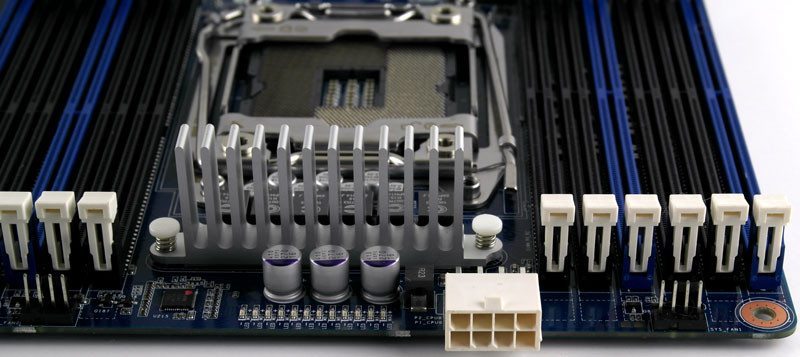
The Intel C612 chipset provides a whole lot of features including two PCIe Gen3 x16 slots, one PCIe Gen3 x16 slot on x8 speed, and one PCIe Gen2 x4 at x2 speed. There’s also the cleverly designed PCIe x4 mezzanine card slot that shares its bandwidth with the x8 speed PCIe Gen3 slot. If used, that speed will be cut in half to x4 bus speed.
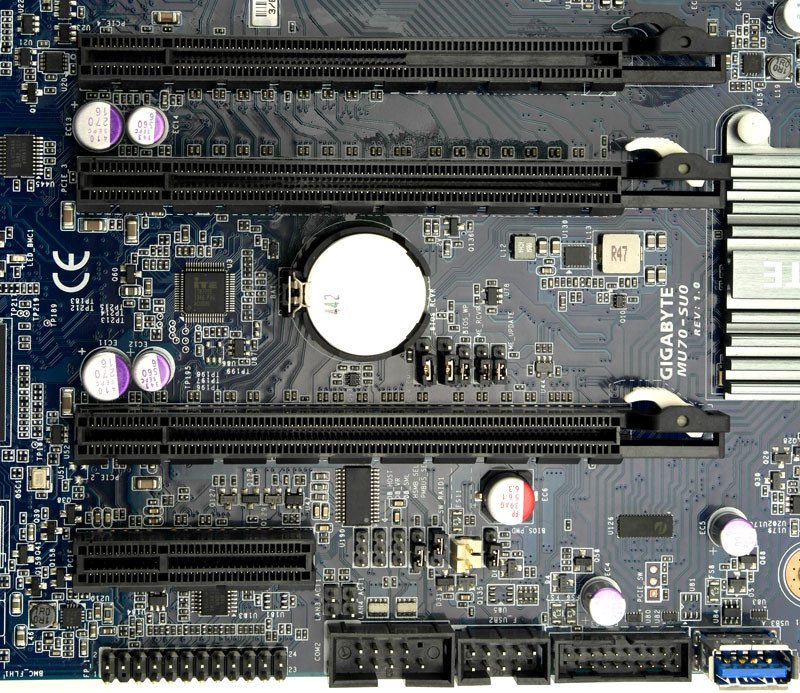
The mezzanine slot is a cleverly designed slot that allows you to expand the motherboard with two additional network connections besides the already present abundance. While the onboard connectors are RJ45 GbE ports, the two extra ports that can be added via the mezzanine slot are 10GbE SFP+ ports.
All of the performance that can be added to this board has to be connected to the world somehow and Gigabyte have added four GbE LAN ports powered by Intel I210 chip as well as an RJ45 remote management port connected to the Aspeed AST2400 chip.
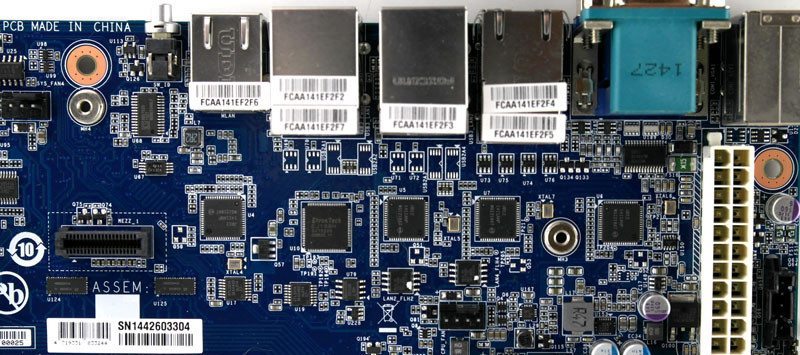
The Aspeed AST2400 doesn’t just provide this motherboard with a built-in GPU solution that can display 2D video in a resolution up to 1920×1200 pixels at 60Hz and with 32bpp, it also provides the above-mentioned remote management capabilities. It is basically a complete system on a chip and it adds a lot of extra benefits to a motherboard like this.
The Avocent MergePoint IPMI 2.0 web interface provides access to your network and security settings, user control, service settings, IPMI settings, session control, LDAP settings, power control, voltages, fans, and temperature monitoring as well as system event logs, event management, serial over LAN and vKVM & vMedia.
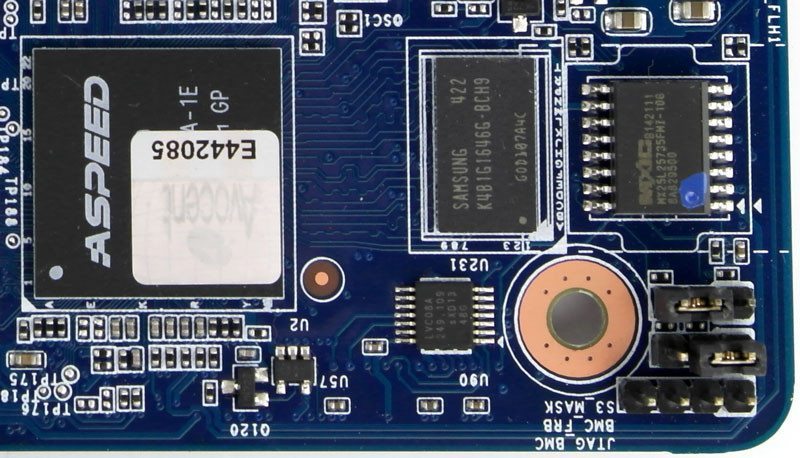
BIOS management can be troublesome at times, but not on the Gigabyte MU70-SU0 motherboard. Gigabyte has developed an integrated function that lets you update the BIOS of your motherboards without having a CPU, memory, or drives installed. You don’t even have to power the system on, but it does need to be connected to a PSU. You can upgrade one board at a time via the standard IPMI 2.0 web interface or multiple boards simultaneously via a command line.
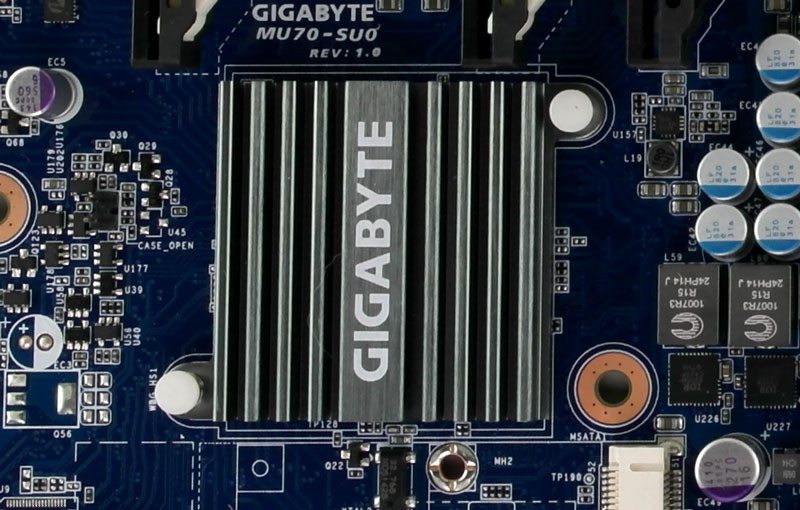
There are plenty of storage possibilities thanks to the 10 SATA3 channels that this chipset provides. On the MU70-SU0 we find eight SATA III 6Gb/s ports, one SATA III 6Gb/s port supporting SATA DOM, and one 1 x mSATA 6Gb/s slot. You can set up Intel SATA RAID where mode 0, 1, 5, and 10 are supported.
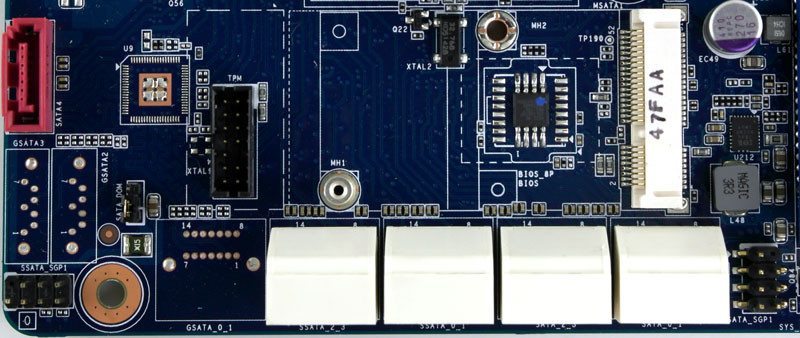
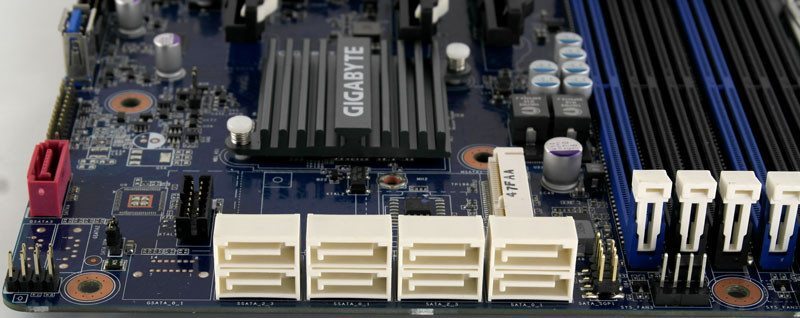
The rear I/O panel provides four USB 3.0 and two USB 2.0 ports as well as a dual-use PS/2 port. There’s an ID button with LED as well as the five RJ45 ports, a serial port, and a D-Sub VGA port.
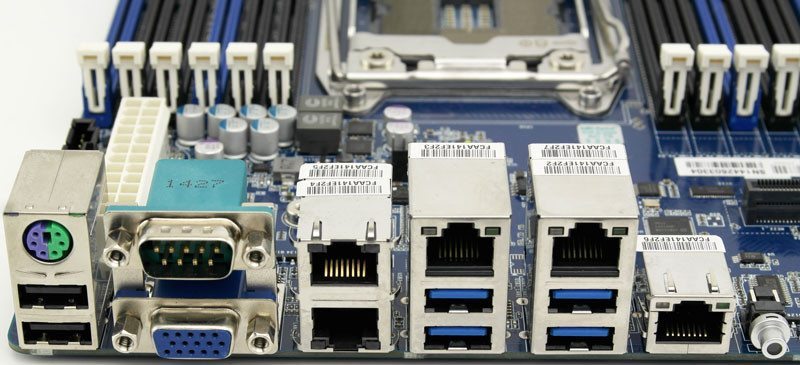
There are a lot more on-board connectors on the Gigabyte MU70-SU0 than the already mentioned. The motherboard gets its power from a 24-pin ATX main power connector and an 8-pin ATX 12V connector. There is one header for the CPU fan and four headers for system fans. You get one header for two USB 3.0 ports and one for two USB 2.0 ports, but the motherboard also includes an on-board vertical type A USB 3.0 connector.
One serial header, one PMBus connector, one IPMB connector, one TPM header, and a chassis intrusion header is found too and so is one JTAG header, two SATA SGPIO headers, and a HDD backplane board header.
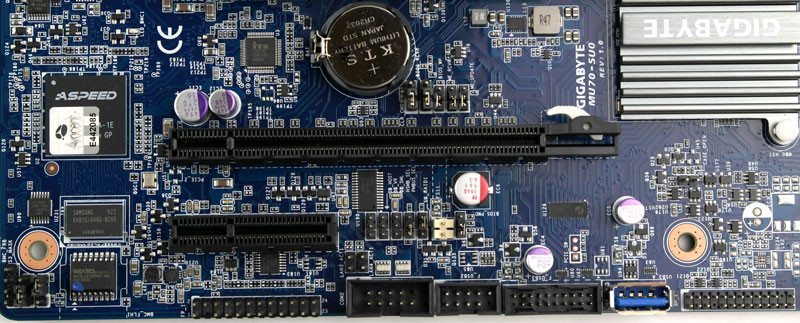
The DOM port supports direct and indirect power and you can also set it to non-DOM use via a jumper. Other jumpers to adjust the features include a PCIe switch, PMBus selection, Software RAID as well as Clear CMOS, BIOS recovery, ME recovery, and ME update jumpers.
This isn’t just a top-notch motherboard when we’re talking about the features, it is also a very well-built board that only uses the best of the best. We’ve seen the Intel LAN, chipsets, and sockets as well as the Aspeed based remote management, but that isn’t all. The board is also built with Japanese solid capacitors for the IR Digital CPU Power Design and otherwise too. Everything is picked to provide you with the best durability possible.



















